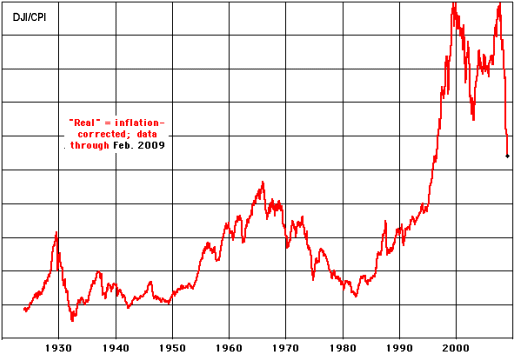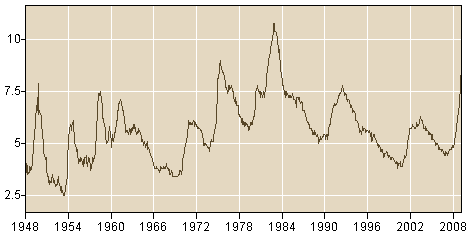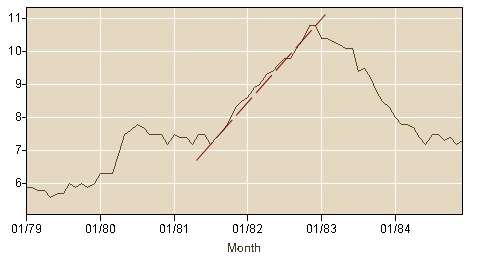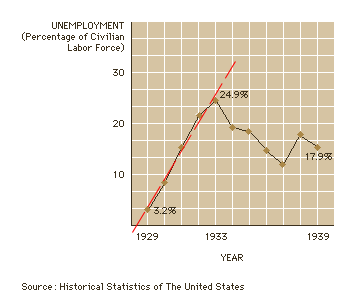Posted on Monday 11 May 2009
White House To Declassify “Holy Grail” Torture Report That Could Undercut Cheney
The Plum Line
Greg Sargent’s blog
May 11, 2009There’s a big piece of news about Dick Cheney and torture buried toward the end of this big Washington Post piece about the torture wars. Specifically: The White House has decided to declassify and release a classified 2004 CIA report about the torture program that is reported to have found no proof that torture foiled any terror plots on American soil — directly contradicting Cheney’s claims. The paper cites “allies” of the White House as a source.
Dem Congressional staffers tell me this report is the “holy grail,” because it is expected to detail torture in unprecedented detail and to cast doubt on the claim that torture works — and its release will almost certainly trigger howls of protest from conservatives. Tellingly, neither the CIA nor the White House knocked down the story in response to my questions, with spokespeople for both declining comment. Here’s the key nugget from the Post piece:
Government officials familiar with the CIA’s early interrogations say the most powerful evidence of apparent excesses is contained in the “top secret” May 7, 2004, inspector general report, based on more than 100 interviews, a review of the videotapes and 38,000 pages of documents. The full report remains closely held, although White House officials have told political allies that they intend to declassify it for public release when the debate quiets over last month’s release of the Justice Department’s interrogation memos…
Although some useful information was produced, the report concluded that “it is difficult to determine conclusively whether interrogations have provided information critical to interdicting specific imminent attacks,” according to the Justice Department’s declassified summary of it.This news is particularly timely in light of Cheney’s continuing high-profile claims that torture may have saved “hundreds of thousands of lives.” The report is the one I wrote about recently that the ACLU obtained through litigation in highly redacted form. It has an entire redacted section that discusses the “effectiveness” of torture — or lack thereof.
They were so arrogant back in those early days after 9/11. The Country was in a fever pitch, driven insane by watching in horror as the twin towers fell to rubble in the center of New York City on live television. Images of that carnage have become almost off-limits. None of us knew how to think about it or what to feel. Our invasion of Afghanistan was a welcome place to focus our rage/hurt/terror. But then there was a lull. In his January 2002 State of the Union Speech [SOTUS], Bush talked about the "Axis of Evil" – that’s where he lost me. Up until then, I’d thought he might grow into the job. At the time, I had no notion where that came from, but I know it sounded crazy. I now know that there was a long history behind that designation. The Neoconservatives at the American Enterprise Institute and the Project for the New American Century had long criticized President Clinton for focusing on the independent terrorists like Osama Bin Laden’s al Qaeda. They insisted that these groups were "State Sponsored Terrorists" being run by Iraq, Iran, and North Korea, and that Clinton was wasting his time chasing them down. The Prophet of this idea was Laurie Mylroie, a former Clinton Advisor turned Zionist Neoconservative – called by Peter Bergen, The Armchair Provocateur.
And so, beginning with Bush’s SOTUS four months after 9/11, there was a year-long march to war in Iraq, justified by Hussein’s supposed Weapons of Mass Destruction and his backing of al Qaeda. He was the real culprit we had to annihilate. We only slowly learned that all of the evidence was not only shaky, it was fabricated from the weakest of substance. As time progressed, it became clearer and clearer that none of that evidence amounted to anything. And then we found out that we were torturing prisoners. The more we learned, the worse that story sounded. But now, it’s becoming clear that our torture program wasn’t simply an over-reaction based on our rage at the 9/11 attack, or our determination to forstall other al Qaeda Mayhem, it was for another reason entirely. We tortured our "high value" prisoners to get them to justify the Iraq Invasion. We were using any means possible to force them to lie.



 The Arabic media is ablaze with the news that Ibn al-Shaykh al-Libi, the emir of an Afghan training camp — whose claim that Saddam Hussein had been involved in training al-Qaeda operatives in the use of chemical and biological weapons was used to justify the invasion of Iraq — has died in a Libyan jail. So far, however, the only English language report is on the Algerian website
The Arabic media is ablaze with the news that Ibn al-Shaykh al-Libi, the emir of an Afghan training camp — whose claim that Saddam Hussein had been involved in training al-Qaeda operatives in the use of chemical and biological weapons was used to justify the invasion of Iraq — has died in a Libyan jail. So far, however, the only English language report is on the Algerian website 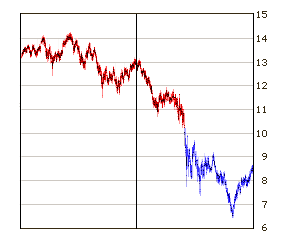
 Science, at its best, starts with data, and theories should always follow that observational base. Young scientists break away from their colleagues when they find something in their field that doesn’t fit – an exception to the prevailing rules. Einstein noted that Newton’s Laws only fit the middle, and didn’t work when you looked at either huge astronomical objects or very tiny particles. It wasn’t his theories that mattered so much. It was his observations. And science shines when it can be used to predict what’s coming. Was there such a person in the field of Macroeconomics that could’ve let us know about that graph at the beginning of this post? Sure. His name was Robert Shiller. And he did
Science, at its best, starts with data, and theories should always follow that observational base. Young scientists break away from their colleagues when they find something in their field that doesn’t fit – an exception to the prevailing rules. Einstein noted that Newton’s Laws only fit the middle, and didn’t work when you looked at either huge astronomical objects or very tiny particles. It wasn’t his theories that mattered so much. It was his observations. And science shines when it can be used to predict what’s coming. Was there such a person in the field of Macroeconomics that could’ve let us know about that graph at the beginning of this post? Sure. His name was Robert Shiller. And he did 
 The USD104bn redemption figure amounted to 7.4 per cent of industry assets, but did not exceed the record for a quarterly withdrawal set in 4Q 2008, when investors withdrew over USD152bn from the hedge fund industry.
The USD104bn redemption figure amounted to 7.4 per cent of industry assets, but did not exceed the record for a quarterly withdrawal set in 4Q 2008, when investors withdrew over USD152bn from the hedge fund industry.
